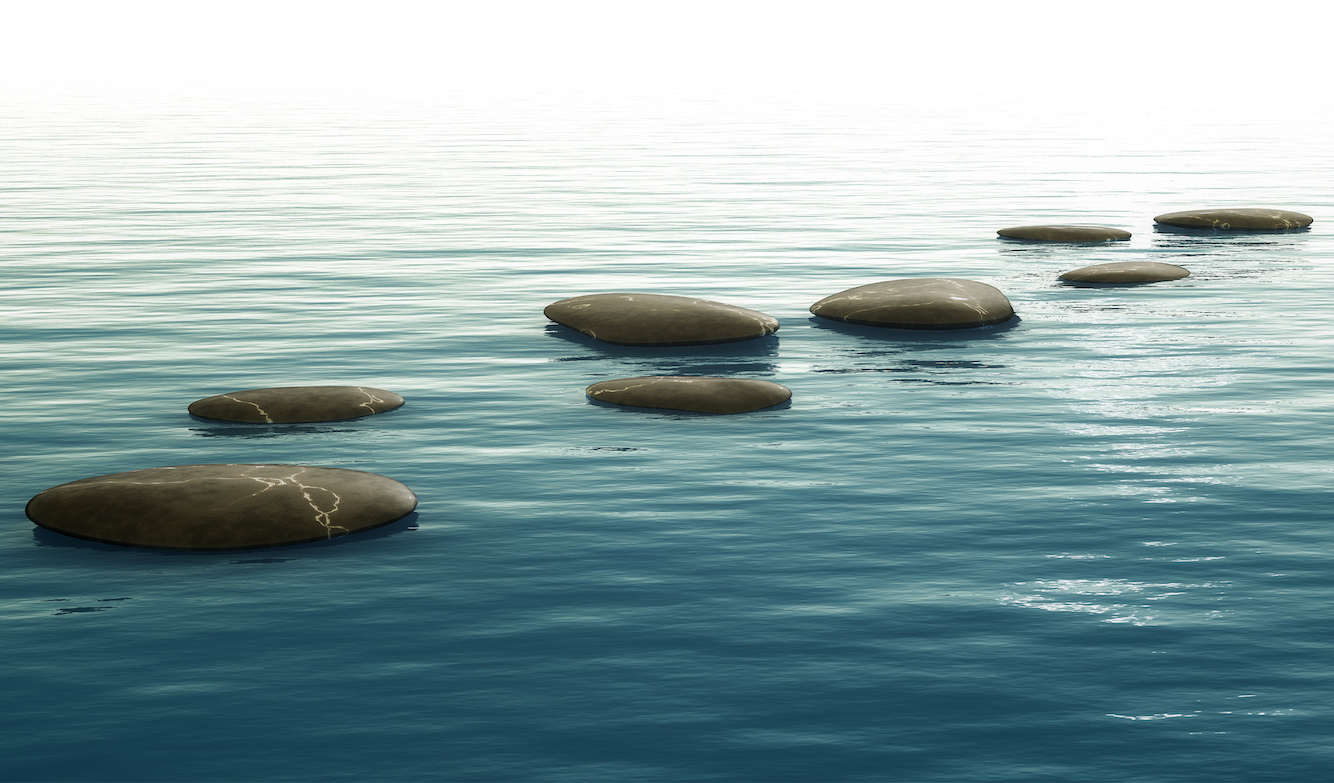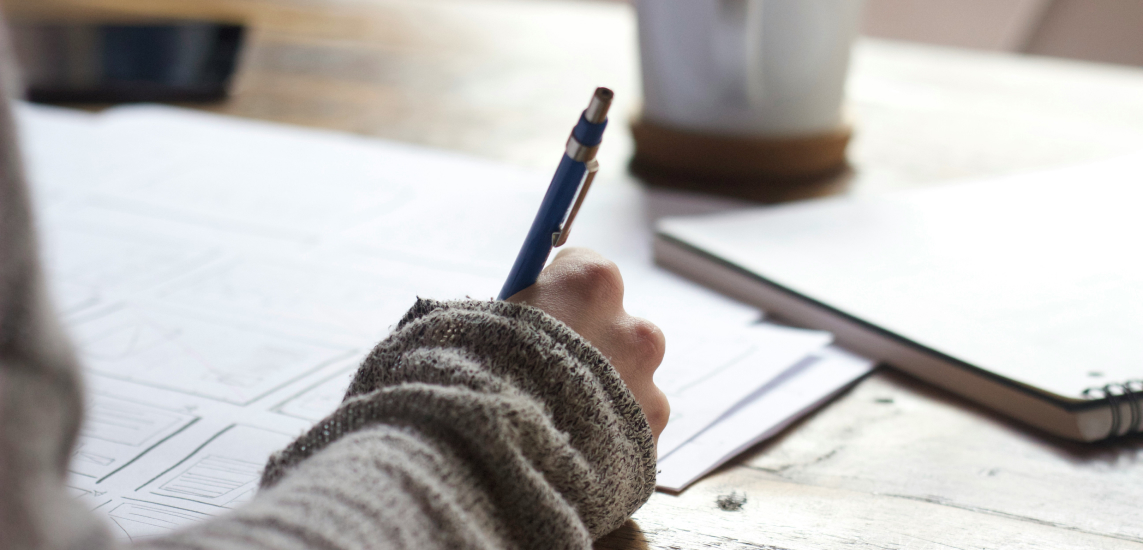We often talk about the important objective of global peace but I find it curious that we don’t spend as much time reflecting on how to find inner peace in our everyday lives.
People are straining under the pressure in a world that feels overly tense. Communities are fragmented and many individuals feel alienated. The epidemic of loneliness is now a public health problem, affecting both the young and the elderly. Depression and anxiety are widespread and the statistics are becoming alarming.
In the US, the UK and Australia, around one in five people live with some form of mental illness. Which means that in your neighborhood, your workplace, on your train or in the café where you buy your morning coffee, it’s likely that someone is having a difficult time.
Perhaps most worrying is the fact that up to half of the people experiencing mental illness don’t (or can’t) access any treatment at all.
How To Find Inner Peace In Our Overly Dramatized Lives
No question living in current times can be challenging. The rise of ‘drama’ in our society is also adding to stress levels:
- We see fiery tempers on our roads and in our sports stadiums.
- There’s often high conflict during question time in parliament.
- Health care workers are increasingly attacked by patients and families.
- Even teachers are at risk from violent students and parents.
In the media, we see the same inclination:
- Magazines and newspapers favor dramatic headlines and it’s the negative news that sell.
- Reality television programs pit people against one another and conflict is often revered.

Constantly engaging with our smartphones keeps increasing our adrenalin addiction.
Research reveals that smartphones, which give us access to people and information so effectively, have also reduced our capacity for boredom. They make us impatient for the next notification and addicted to ongoing stimuli.
While we’re engaging with drama in the media or waiting for our phones to light up, we’re fuelling our adrenaline addiction. The constant stimulus keeps our sympathetic nervous systems engaged and alert.
How Stress Affects Our Physical And Emotional Wellbeing
Our physical bodies have no way of perceiving the difference between an imagined threat and a genuine one and while we’re on the sofa, we’re not burning stress hormones like we would have been while chasing the enemy.
So inside us, stress starts playing havoc with our immune systems. It messes with our digestive systems and our fertility, it makes us age more quickly, increases our risk of heart disease and even contributes to gum disease.
Equally concerning is the impact all of this tension has on our emotional wellbeing. Because stress influences our ability for emotional control, it means we’re more irritable and less mindful when we respond to the people around us and more inclined to judge ourselves harshly when we make a mistake. Our relationships suffer, tensions remain high and the prickly cycle goes on – leaving us more susceptible to mental illness.
Unhooking From Outside Fulfillment And Making Mental Space
Often our search for calm has an outward focus. We think that if we find the right partner, the right role, if we can achieve our ideal weight or if we make more money, we might feel more at ease.
But unless we can unhook from the habit of seeking fulfillment outside of ourselves, it’s unlikely we’ll find genuine contentment within.
Maybe the first step is learning to be more comfortable with boredom. We need space for our minds to wander, to daydream, to explore our inner worlds and the outer world, too. Thinking time is essential to the creative process and the same applies when getting to know yourself well and contemplating the kind of life you want to live.
Too often, we resist the uncomfortable process of reflection, choosing instead to busy or distract ourselves. As many artists say, the best creative ideas come after spending a day staring at a blank canvas. Sitting with, and eventually moving beyond the discomfort of uncertainty is imperative to boosting our inner wisdom.
(Re)Connect With The Natural World
Possibly the best way to create mental space is spending regular time disconnected from technology and immersed in the natural world.
As Japanese studies of shinrin-yoku (forest bathing) have found, the benefits to our wellbeing are significant. Immune function is improved, blood pressure reduced, our mood is elevated and importantly, our intuition is deeper and clearer. As we closely observe the natural world, we witness more of its wonder which helps swing the mind’s pendulum towards a calmer state of being.
The Balanced State Of Equanimity
With this sense of space, we may find that we can also cultivate a greater capacity for equanimity. This is the state where we’re able to allow thoughts, feelings, and experiences to arise without becoming overly reactive or attached to them.
Mostly we find that our preferred way of interacting with difficult thoughts or experiences, sits between the polarities of over-identification or suppression:
- We become overly-identified with our emotions by over-thinking and escalating them or
- we suppress our feelings by pushing them away or numbing them.
We seek solace in a glass of wine (or three), a block of chocolate or by scrolling through social media. These things bring immediate relief but often exacerbate the stress cycle in other ways.
Between the two extremes lies the balanced (and often elusive) state of equanimity. When we experience equanimity,
- we allow ourselves to feel our feelings, but we don’t become consumed by them,
- we observe our emotions and thoughts and learn to let go of negative judgments, and,
- we replace negative judgments of others and ourselves with an attitude of gentle matter-of-factness and acceptance.
Cultivating A Greater Capacity For Equanimity Through Meditation
A measured state of mind is most easily accessed when we create stillness. One of the most effective ways to do this is through meditation.
Read more: Explore how to meditate properly to let the many benefits flourish.

Meditation is an effective way to attain equanimity which deepens our sense of intuition and purpose, which helps to find inner peace .
When your body is relaxed and your mind less busy, you can expand your awareness beyond the boundaries of your usual thinking. It is then that you’re likely to see things more clearly.
And with this clarity of mind, when you find yourself in the midst of conflict (for example) you might say to yourself, ‘this is a difficult conversation, but I can handle it’ or ‘what she said hurt me, but maybe I need to find out more before I react’ or ‘I don’t think I’ve expressed myself in a way that my partner understands. I’ll try a different way.’
When you draw on deep wisdom and insight, you feel less inclined to blame and more open to forgiveness. You’re able to recognize and accept the flaws in yourself as well as the flaws in others.
You are searching for practical guidance on how to find inner peace? Discover our large collection of free guided mindfulness meditation practices that help to quieten the mind and explore your thought patterning. Or listen to these handpicked meditations by the author and Insight Timer publisher Kate James:
- Mindful Morning Meditation - for a calm approach to your day. Kate James 13:48
- Mindful Awareness Meditation - to pay deliberate attention to internal and external experiences. Kate James 9:39
- Releasing Anxiety - A restorative practice Kate James 18:09
Accepting Your Humanity & Connecting With Your Intuition
And as you disengage from judgment, an equanimous mind also allows you to disengage from your ego. Which gives you room to sit more comfortably with feelings such as loneliness, vulnerability or loss.
Instead of seeking immediate solace, you may find you can simply soften into those feelings, recognizing that there’s nothing inherently wrong with you – these are simply part of the human condition.
With a little space and time and less, difficult feelings usually ease and as we move through them, we often become clearer about what really matters in our lives.
Instead of turning to your phone for distraction or searching social media for answers, you look instead to your intuition. You may even find that you recognize what the world needs from you as you engage your innate strengths. You ask the question, ‘what can I give?’ (not ‘what can I get?’).
The Benefits Of An Equanimous Mind
When we connect with this deeper sense of purpose, we begin to see that much of the minutiae that occupies our minds every day, is at best, unhelpful and at worst, meaningless.
We learn to acknowledge our ‘whole’ selves and accept both our strengths and our shortcomings and paradoxically, we become both more humble and more confident. We’re more open and forgiving and more measured in conversation, but equally willing to speak out about issues that matter. When we unhook from drama, we start to value the gift of peace.
We may find that we can be measured and kind as we interact with our loved ones and more mindful in how we react to life. Maybe we can even allow the impatient driver to cut into the traffic or forgive the friend who forgot our birthday. We can make a conscious choice about whether we’ll automatically accept an invitation into conflict and we learn to engage only in the battles that matter – for our mental health and in service to our community and world.
We become everyday role models for a different way of being. One where we sometimes choose to let things wash over us instead of feeling the need to always defend our point of view. One where we genuinely learn about what it means to ‘live and let live’. Where we can have a different opinion to that of our neighbor, but happily agree to disagree – because harmony is a better goal than always needing to convince someone you’re right.
In turn, we free up our internal energy and respond to life with integrity and kindness and with the clear intention to contribute to the real possibility of world peace.
Kate James doesn’t just know how to find inner peace. In her Insight Timer course “Build Self-Belief Through Mindful Action” she teaches how to create a positive relationship with yourself.







